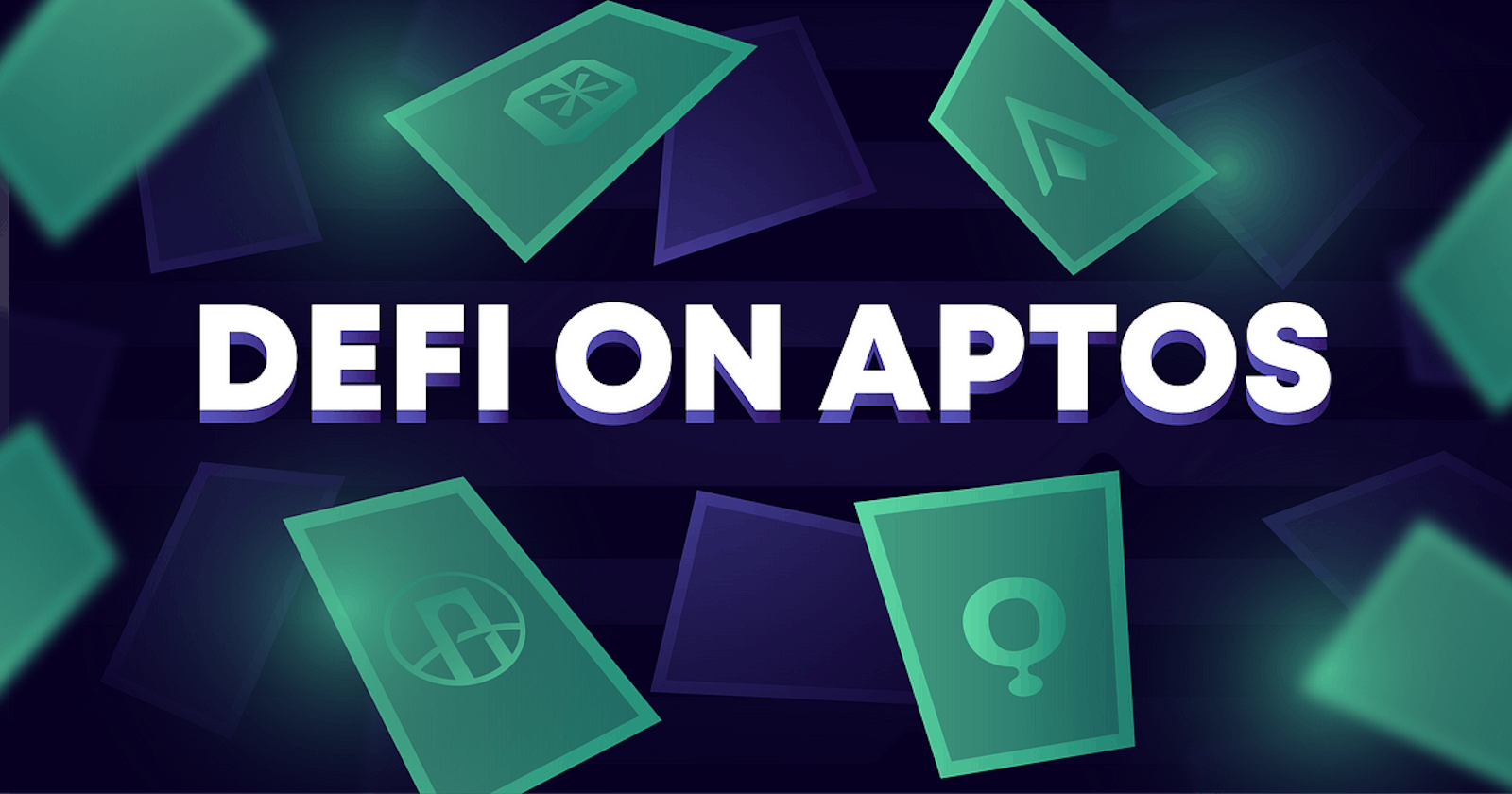Decentralized finance (DeFi) has been a driving force in the crypto space, revolutionizing traditional financial services and opening up new opportunities for users worldwide. While established chains like Ethereum, Solana, and BNB Chain have been at the forefront of the DeFi movement, a new player has emerged with unique advantages that promise to reshape the DeFi landscape. Aptos, a Layer 1 blockchain platform, is rapidly gaining traction as a purpose-built solution for DeFi applications, offering unparalleled speed, scalability, and cost-effectiveness.
In this article, we will embark on a journey into the nascent DeFi world of Aptos, exploring its remarkable advantages over mature ecosystems like Ethereum, Solana, and BNB Chain. From its lightning-fast transaction speeds and micro-transaction fees to its developer-friendly environment and community-driven governance, Aptos stands poised to become a major contender in the DeFi innovation frontier.
Aptos' unique advantages
As a new Layer 1, Aptos offers technical advantages that make it appealing for DeFi developers:
Speed: Transactions finalize in under 5 seconds, far faster than Ethereum. This allows for rapid swapping, liquidity provision, and yield farming.
Low fees: Transaction fees are a fraction of a penny, much cheaper than Ethereum gas costs. This makes micro-transactions viable.
Modular design: Any Aptos app can integrate with any other. This interoperability incentivizes creative DeFi combinations.
Developer focus: Aptos is built using Rust for safety. This attracts top-notch developers to build on Aptos over Ethereum's Solidity.
Top DeFi protocols on Aptos
Given Aptos' compelling capabilities, developers are flocking to build DeFi apps. Top protocols include:
Pontem Network

Pontem is an algorithmic stablecoin protocol that offers several innovations:
PONT stablecoin uses dynamic rebalancing and collateralization to maintain a 1:1 peg to USD. This allows using it as a pricing unit across Aptos Defi.
Decentralized community governs parameters like collateral ratios, interest rates, and oracle feeds. This mitigates centralized risk points seen in traditional stablecoins.
Auto-coupon rebasing rewards PONT stakers during contractions and incentivizes collateral locking during expansions. This makes the system self-regulating.
Fully transparent on-chain operations via the PONT Dashboard DApp. Users can monitor real-time status and supply dynamics.
Modular architecture allows easy integration with other Aptos Defi apps via the Pontem API. This brings stability and liquidity to the ecosystem.
Pontem's design showcases how Aptos' speed and modular architecture can power decentralized algorithmic stablecoins at scale. This brings trustless price-stability to fuel broader adoption.
Thala Labs
Thala is building a decentralized super-app on Aptos bringing multiple Defi services under one platform:
Thala Swap utilizes an AMM model with low slippage and fees, compatible with MetaMask. V3 upgrade will add concentrated liquidity pools.
Thala Earn auto-compounds yield across lending, liquidity pools, and staking on Thala and other Aptos Defi apps.
Thala Pay leverages Layer 2 payments network Moonbeam to enable fast crypto checkout and fiat offramps.
Thala Track provides portfolio management across Aptos and EVM chains. Users can track balances, transactions, and yield.
Thala's unified platform aims to make Defi simpler for mainstream users. Its THT governance token aligns incentives between users and developers.
Petra Finance
Petra Finance brings money market functionality to Aptos:
Users can supply assets as collateral to borrow stablecoins like USDP (USD Pylon) at dynamic interest rates.
Lenders earn yield by supplying assets to liquidity pools that borrowers draw from.
PETRA token holders govern interest rate models and risk parameters like collateral ratios.
Oracle integration provides price feeds to maintain overcollateralization of borrow positions.
By porting a lending model like Aave to Aptos, Petra allows trustless access to liquidity for traders, hedgers, and more. Its community focus and transparency reflect core Aptos ideals.
Tsunami Finance

Tsunami Finance is bringing institutional-grade trading tools to everyday crypto traders on Aptos, including:
Perpetual Swaps - Trade with up to 10x leverage on perpetual contracts tracking major crypto assets.
Options - Write or sell options contracts to other traders to earn premiums.
Margin Trading - Borrow funds from liquidity pools to trade with leverage.
Lending/Borrowing - Earn yield on deposits or borrow funds using your crypto as collateral.
Its TSUNAMI governance token aligns network participants by rewarding liquidity providers, traders, and operations. This community focus reflects Aptos' values.
By combining institutional-grade investing tools with a seamless user experience, Tsunami expands access to advanced trading for all on Aptos.
GMX

GMX brings decentralized perpetual and options trading to Aptos users in a permissionless and trustless way.
Perpetual contracts allow traders to speculate on crypto price movements with up to 20x leverage. This enables effectively going long or short without needing to own the underlying asset.
Options contracts give buyers the right (but not obligation) to buy or sell an asset at a set price on an expiration date. Writers collect premiums for selling options to buyers.
All contracts are settled on-chain in a transparent and verifiable manner. There is no centralized clearing house like in traditional finance.
Keepers ensure the oracle price feed remains accurate through arbitrage. This decentralized mechanism preserves collateral value.
Staked GLP governance tokens give the GMX community ownership over protocol parameters and growth.
By combining professional-grade investing tools with a seamless web3 interface, GMX unlocks sophisticated derivatives trading for all on Aptos.
The DeFi Innovation Frontier: How Aptos Stacks Up

Decentralized finance on Ethereum has exploded in adoption and value, facilitating billions in decentralized trading, lending, and more. Yet limitations like congestion, high fees, and design constraints have restricted Ethereum DeFi's capabilities and accessibility.
Enter Aptos - a new Layer 1 purpose-built to power the next evolution of DeFi. With its focus on speed, scalability, usability, and community governance, Aptos overcomes Ethereum's limitations to open new frontiers for DeFi innovation.
But how exactly does Aptos' emerging DeFi ecosystem compare to Ethereum, Solana, and BNB Chain? What innovations does it offer developers and users? Let's analyze the key advantages propelling Aptos to the forefront of DeFi advancement:
Scalability and Transaction Throughput:
Aptos offers lightning-fast transaction finalization in under 5 seconds, significantly outpacing Ethereum's confirmation times, which can sometimes take minutes. While Solana also boasts high scalability with thousands of transactions per second, Aptos' transaction throughput is competitive, making it an attractive choice for DeFi applications that require rapid execution.
Low Fees:
In contrast to Ethereum's high gas costs, Aptos provides micro-transaction fees that are a fraction of a penny. This cost-effectiveness enables viable micro-transactions on the platform, facilitating various DeFi activities like yield farming and liquidity provision without excessive fees.
Developer-Friendly Environment:
Aptos offers a developer-friendly ecosystem with comprehensive developer resources, including extensive documentation, tutorials, and libraries. The Move language enables precise control over asset ownership and transfer, fostering the development of secure and efficient smart contracts. In contrast, other chains may have a steeper learning curve or limited developer resources, hindering the adoption and creation of DeFi projects.
Community and Governance:
The Aptos DeFi ecosystem benefits from an active and engaged community, driving innovation and contributing to the growth of the platform. The community-driven governance model empowers token holders to participate in decision-making, fostering a decentralized and inclusive governance structure. Other chains may have different governance models, potentially impacting the level of community engagement and decision-making.
Cross-Chain Interoperability:
Aptos' modular design allows seamless integration of any app with another, incentivizing creative combinations of DeFi protocols. Moreover, Aptos supports cross-chain interoperability, allowing collaboration with different blockchain ecosystems, including Diem, opening up new avenues for liquidity flow and asset transfers.
Conclusion

In the rapidly evolving world of decentralized finance, Aptos stands out as a next-generation blockchain purpose-built to power the future of DeFi. As the DeFi innovation frontier continues to expand, Aptos is at the forefront, overcoming the limitations faced by other chains and offering developers and users an unparalleled DeFi experience. With its unique advantages and growing ecosystem of top DeFi projects like Pontem Network, Thala Labs, Kana Labs, and Tsunami Finance, Aptos is undoubtedly a key player in shaping the future of decentralized finance. As more developers and users recognize the potential of Aptos, the platform is poised to revolutionize the DeFi landscape and unlock new possibilities for the broader blockchain community.


